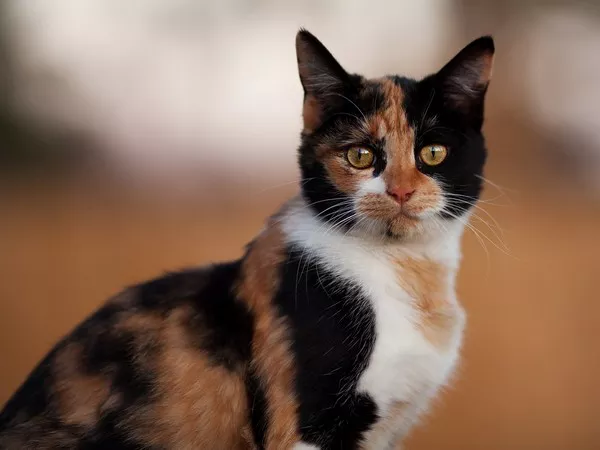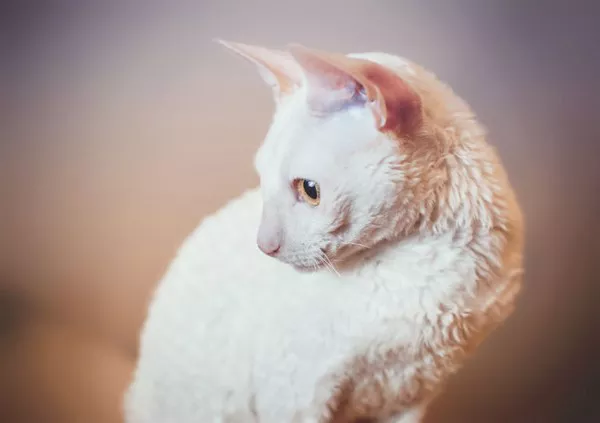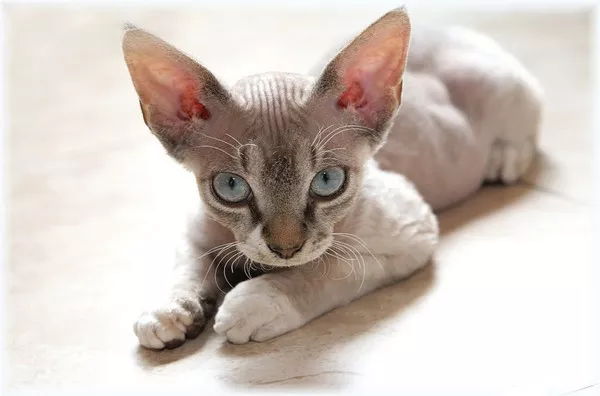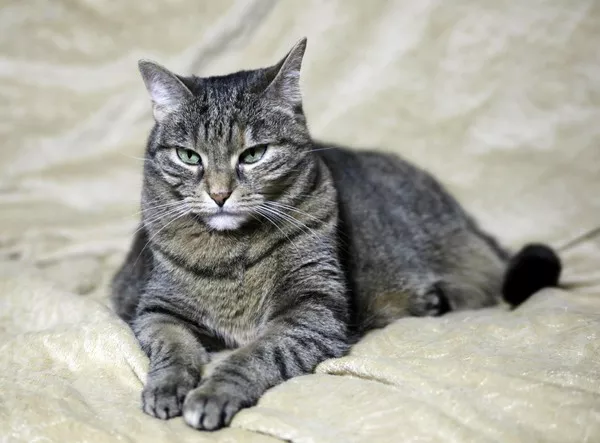Calico cats, with their distinctive tri-color coat patterns and vibrant personalities, are beloved companions in households around the world. Providing proper nutrition is essential for ensuring the health and well-being of these unique feline friends. However, determining the optimal feeding schedule for a calico cat requires careful consideration of factors such as age, weight, activity level, and dietary preferences. In this article, we explore the guidelines and considerations for feeding calico cats to help you develop a nutritious and balanced feeding routine tailored to your feline friend’s needs.
Understanding Calico Cats
Before diving into the specifics of feeding schedules, it’s important to familiarize ourselves with the characteristics and traits of calico cats.
Coat Patterns and Genetics
Distinctive Appearance:
Calico cats are known for their striking coat patterns characterized by a combination of three colors: white, black, and orange (or variations of these colors). These unique coat patterns result from genetic factors, specifically the presence of genes for white spotting and coat color determination. Calico cats may exhibit various patterns, including patches, spots, or marbling, creating a visually appealing and eye-catching appearance.
Genetic Makeup:
The distinctive coat colors of calico cats are determined by genes located on the X chromosome. Female calico cats typically have two X chromosomes (XX), with one chromosome carrying genes for black or orange coat color. Male calico cats are rare and usually have an extra X chromosome (XXY), resulting in sterility and other health issues. The genetic complexity of calico coat patterns adds to their allure and uniqueness as a feline breed.
Nutritional Needs of Calico Cats
Proper nutrition is essential for maintaining the health, vitality, and longevity of calico cats. Understanding their specific nutritional requirements is crucial for developing an effective feeding schedule.
Balanced Diet Requirements
Essential Nutrients:
Calico cats, like all felines, require a diet that provides essential nutrients, including protein, fats, vitamins, and minerals. Protein is particularly important for supporting muscle growth and maintenance, while fats serve as a concentrated source of energy. Vitamins and minerals play vital roles in various physiological functions, such as immune function, bone health, and skin and coat maintenance. A balanced diet formulated specifically for cats is essential for meeting their nutritional needs and promoting overall health.
Water Intake:
Adequate hydration is essential for calico cats to maintain optimal health and well-being. Cats have a low thirst drive compared to other animals, making them susceptible to dehydration if they do not consume enough water. Providing access to fresh, clean water at all times is essential for ensuring proper hydration. Wet cat food, which has a higher moisture content than dry food, can also help increase water intake and promote urinary tract health in calico cats.
Establishing a Feeding Schedule
Developing a feeding schedule that meets the nutritional needs of your calico cat while accommodating their lifestyle and dietary preferences is key to promoting their health and well-being.
Considerations for Feeding Frequency
Age and Life Stage:
The age and life stage of your calico cat play a significant role in determining their feeding schedule. Kittens require frequent meals throughout the day to support their rapid growth and development. As they transition into adulthood, most cats can be fed two to three meals per day. Senior cats may benefit from smaller, more frequent meals to accommodate changes in metabolism and digestive function. Consult with your veterinarian to determine the appropriate feeding schedule based on your cat’s age and life stage.
Activity Level and Energy Needs:
The activity level and energy needs of your calico cat should also be taken into account when establishing a feeding schedule. Active, energetic cats may require more frequent meals to fuel their daily activities and maintain a healthy body weight. Conversely, sedentary cats or those prone to weight gain may benefit from portion-controlled meals spaced throughout the day to prevent overeating and obesity. Observing your cat’s behavior and monitoring their body condition can help you adjust their feeding schedule as needed to promote optimal health and weight management.
Choosing the Right Diet
Commercial Cat Food:
Commercial cat food formulated specifically for feline nutritional needs is the foundation of a healthy diet for calico cats. Choose high-quality cat food that is appropriate for your cat’s age, life stage, and health status. Look for products that are labeled as complete and balanced, indicating that they contain the essential nutrients cats need for optimal health. Consider factors such as protein content, ingredient quality, and moisture content when selecting cat food for your calico companion.
Dietary Preferences and Restrictions:
Consider your calico cat’s dietary preferences and any specific dietary restrictions or sensitivities they may have when choosing their food. Some cats may prefer wet food over dry food, while others may have allergies or intolerances to certain ingredients. Consult with your veterinarian if you have concerns about your cat’s dietary needs or if you are considering switching their food. Your veterinarian can provide guidance on selecting the right diet for your calico cat based on their individual needs and preferences.
Monitoring Your Cat’s Health
Regular monitoring of your calico cat’s health, weight, and feeding habits is essential for ensuring their nutritional needs are met and addressing any potential health issues promptly.
Weight Management
Body Condition Scoring:
Regularly assessing your calico cat’s body condition through visual inspection and palpation can help you monitor their weight and overall health. Use a body condition scoring system, such as the 9-point scale developed by the World Small Animal Veterinary Association (WSAVA), to evaluate your cat’s body condition objectively. Aim for a body condition score of 4-5 out of 9, indicating a healthy weight and body condition for most adult cats.
Weight Monitoring:
Keep track of your calico cat’s weight over time and watch for any significant changes that may indicate underlying health issues or nutritional imbalances. Sudden weight loss or gain, changes in appetite or eating habits, and alterations in activity level or behavior should be promptly evaluated by your veterinarian. Regular veterinary check-ups and wellness exams are essential for monitoring your cat’s health and detecting any potential issues early.
Dietary Adjustments
Caloric Needs:
Adjust your calico cat’s feeding schedule and portion sizes as needed to maintain a healthy body weight and prevent obesity or malnutrition. Consult with your veterinarian to determine the appropriate daily caloric intake for your cat based on factors such as age, weight, activity level, and health status. Divide the total daily caloric requirement into appropriate portion sizes and feeding times to ensure your cat receives balanced nutrition without overfeeding or underfeeding.
Special Dietary Considerations:
Some calico cats may have special dietary considerations, such as food allergies, sensitivities, or medical conditions that require specific dietary modifications. Work closely with your veterinarian to develop a tailored feeding plan that addresses your cat’s unique nutritional needs and supports their overall health and well-being. Your veterinarian may recommend specialized diets, prescription diets, or dietary supplements to manage specific health issues or support optimal nutrition for your calico cat.
Conclusion: Nourishing Your Calico Companion
In conclusion, establishing a proper feeding schedule is essential for ensuring the health, vitality, and well-being of your calico cat. By considering factors such as age, weight, activity level, and dietary preferences, you can develop a feeding routine that meets your cat’s nutritional needs and promotes optimal health. Regular monitoring of your cat’s weight, body condition, and overall health, along with periodic veterinary check-ups, will help ensure that your calico companion remains happy, healthy, and thriving for years to come.
As you embark on this journey of nurturing your calico cat, remember that every cat is unique, and their nutritional needs may vary. By providing them with a balanced diet, appropriate feeding schedule, and attentive care, you can help your calico cat live a long, healthy, and fulfilling life as a cherished member of your family.



























